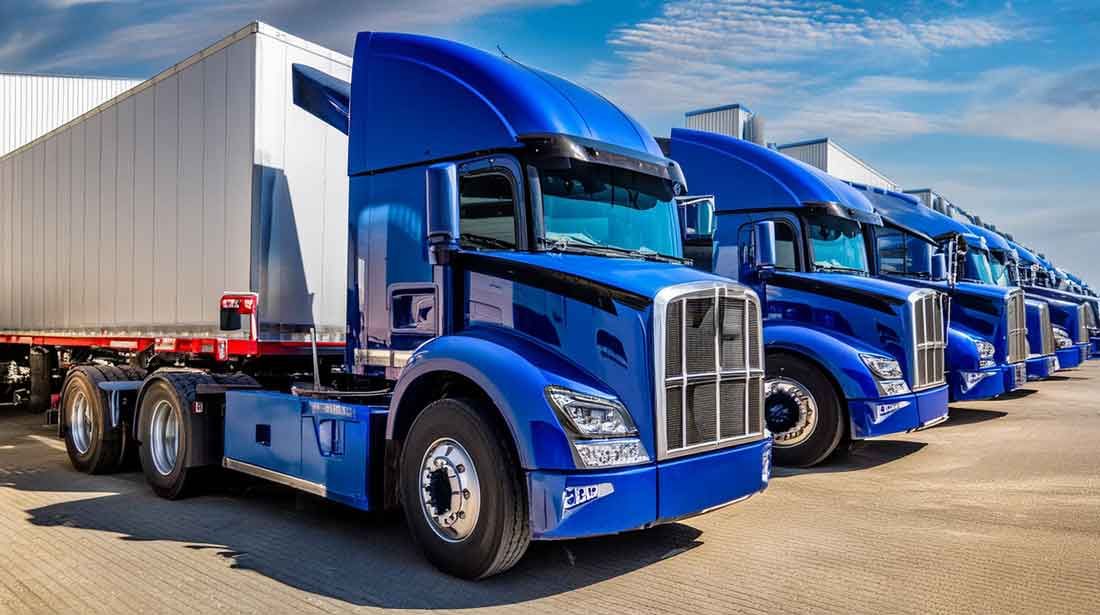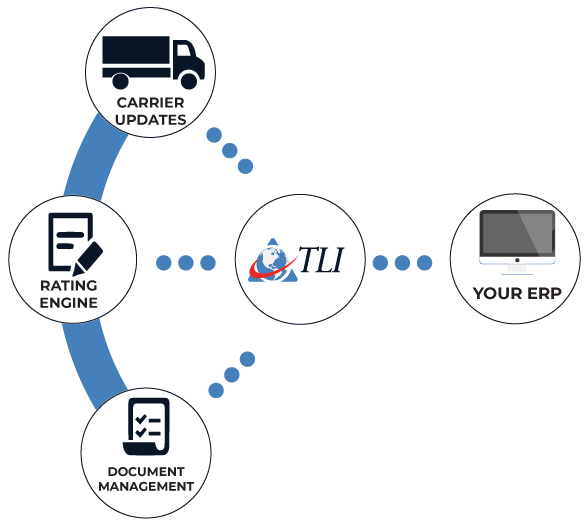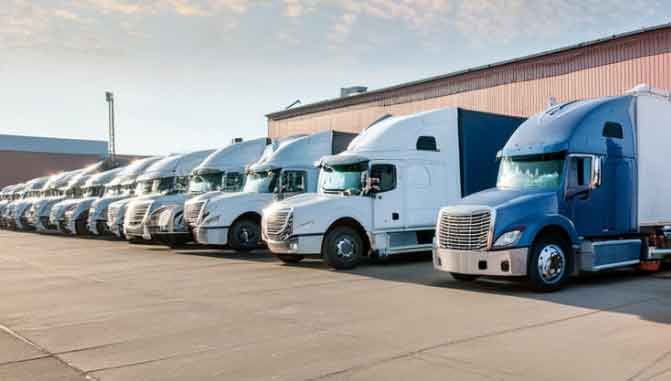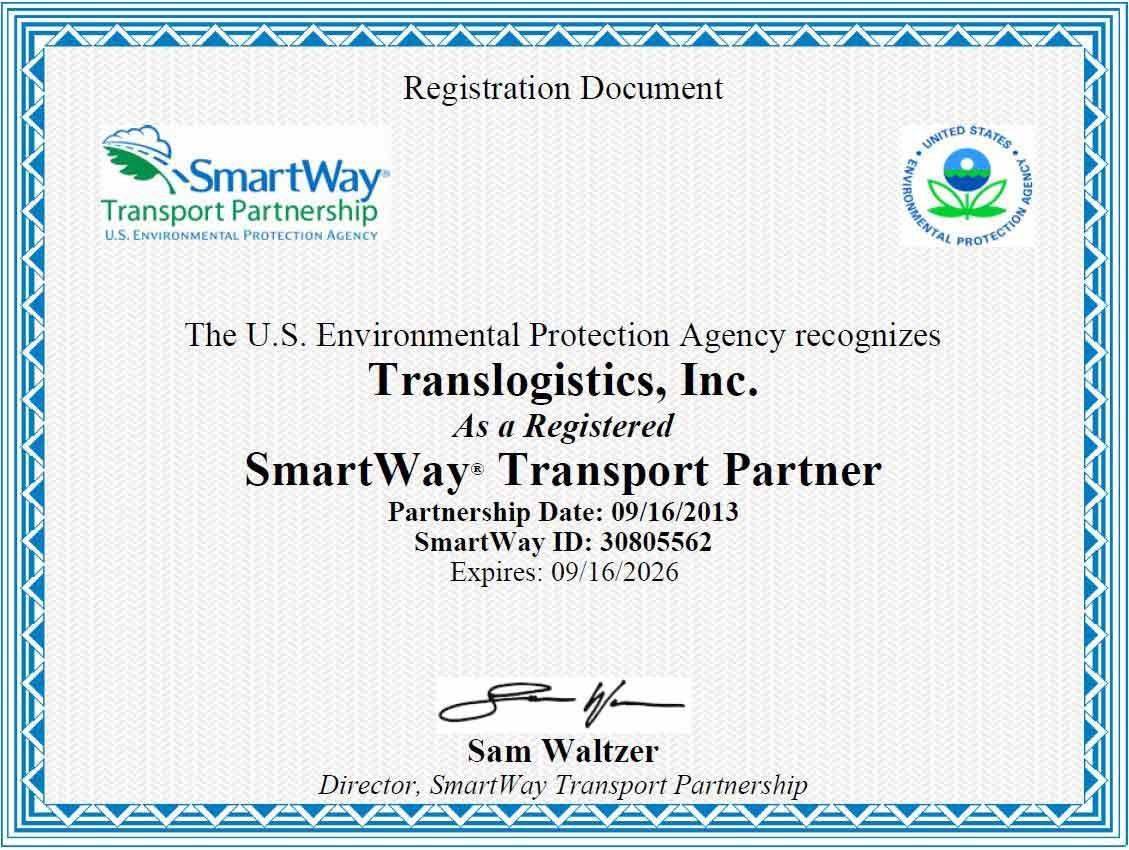Truckload Brokering
What you need to know about Truckload Brokering!
Brokering Truckloads
The truckload industry is largely made up of small mom & pop carriers who want to maximize time behind the wheel. Shippers are largely worried about sourcing raw material, meeting aggressive production goals and focusing on their core competency. Truck brokering negotiates cargo hauling between shippers and carriers. Everyone in the logistics industry should be well versed on how hauling freight works.

What does a logistics broker do?
A freight broker is a middleman between shippers and carriers. The logistics broker are an indispensable partner whom arranges truckloads between shippers who must transport freight and carriers who haul truckloads of freight. The equipment types vary greatly but generally range from Dry Van, Refrigerated truckloads and flatbed. We can recall in Economics 101 the supply/demand matrix, and within the logistics industry demand are shipper loads, and supply is available carrier truckload capacity.
Using a freight broker offers flexibility to shippers to focus on their core competency. With so many niche carriers’ available brokers can shop freight to ensure the market rate is competitive and the carrier has their operating authority. Statistically freight gets lost & damaged in-transit and having a broker who can manage the appointments, tracking, regulation, and invoice disputes enables the delegation of a great deal of busy work.

Why become a truck broker?
Virtually every commodity needs to be moved, and this creates a great deal of demand in a large growing industry. Perhaps you are a carrier and get an opportunity to move a load beyond the capacity of your own equipment, or perhaps you are a shipper that needs to get your precious cargo to a destination swiftly virtually every party in the industry has a reliable broker that they are partnered with. If you have a load that needs to be hauled it is common to have an expert shop your freight against the market to get a competitive market rate and they will support with the BOL creation and tracking, claims management and issue resolution for a small commission.
Requirements to be a Transportation Broker
While it is not a requirement to take an exam to be a transportation broker, the Transportation Intermediaries Association (TIA) offers the Certified Transportation Broker course that is widely recognized in the logistics industry. The Transportation & Freight Broker Certificate is a worthy investment to ensure your precious cargo is being hauled with an industry expert. Learning about regulation, operational challenges and managing risks will lead to a high level of business acumen that is essential to perform reliable execution on each hauled load. At TLI many leaders and employees have the CTB to ensure a high level of expertise is delivered with every load. It is important your current freight broker likewise has their CTB!
A requirement since 2013 that is essential is to obtain an amount in a surety bond or a trust fund of $75,000.
When you have this insurance, you can fill out the Federal Motor Carrier Safety Administration’s OP-1 Application for Motor Property Carrier and Broker Authority. The cost to submit the OP-1 application to get your brokerage authority is $300. You also need to fill out the BOC-3 form which designates your legal representative. It is important to be aware of all the regulations and precedents from prior court cases, which is why TLI strong advises your broker to be TIA CTB certified.
Once the application is submitted your FMCSA will issue an MC# (Motor Carrier Number). This number will enable you to broker loads, however a higher number and a lack of operating history will send red flags to shippers doing proper due diligence.

Technology to broker freight
It is essential to have processes and software that are lean, efficient and contain all the necessary information to reliably haul freight while meeting regulatory constraints. Having a Transportation Management System is absolutely essential to properly haul freight.
- Tracking
- Claims Visibility
- Data & Analytics
- Consolidation optimization
- Rating Engines
- KPI Dashboards
- Lane History
- Contract Management
- Freight invoice Audits
- Financial record keeping
To properly provide services that are baseline expectations in this industry requires a cutting edge TMS along with having it integrated into a load board like the two that TLI uses DAT & Truckstop.
If you are interested in being an Agent of TLI or learning more about our truckload brokerage services, please be sure to fill out the form below to discuss your needs with an expert:
TL Brokering Contact
TLI Insights
Get the latest logistics insights and tips from TLI's award-winning team. Stay ahead in transportation planning.
Questions? Email us at marketing@shiptli.com



